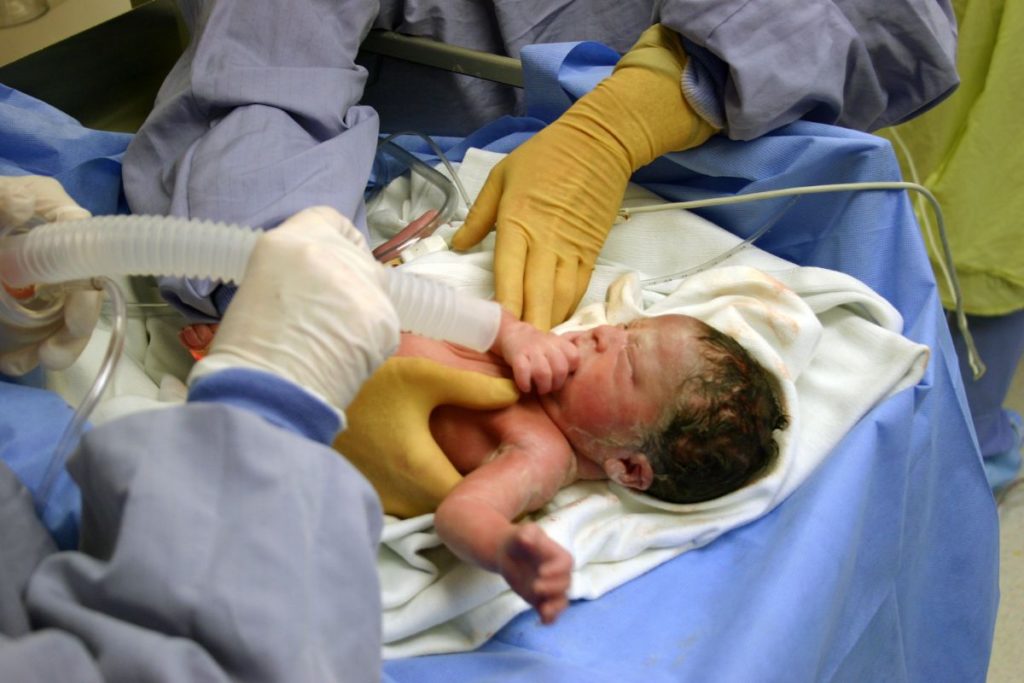
Every time we grabbed coffee or got together, we’d ask how it was for each other on set and we would always end up talking about personal stuff. Our answers are so bad for this question, because we really never chatted about it. Did you talk to Melanie about this shaping adult Shauna? This explains a lot about the adult Shauna the audience has gotten to know, as she reveals herself more and more as the season goes on. Shooting with a newborn is also really hard. So we had to stop mid-scene and mid-emotion to bring the baby back. It was also hard because we were shooting with a real baby, who would always cry. And then it was just really sad to see that it doesn’t make it. When I read it, I really was thinking the baby made it. So I watched those and it could have gone both ways, honestly.

I watched a lot of birthing videos and birthing scenes, from House of the Dragon, there is a pretty big one, and The Handmaid’s Tale. And I was like, “Oh, God, I have so much to do in this.” And I was so scared. No, they just gave me the script a few days, maybe a week before. I would look at the biggest scenes of the episode - really, they were all big - and I would be counting down, “OK, I have only this one big one left and then I’ll be relieved.” That was mostly what made me nervous, was to be good, honestly. It was mostly, yes, about giving a good performance that made me the most stressed. So it sounds like the pressure for you was more around getting it right? So as soon as the day was done I’d be tired, but I wouldn’t be home, depressed and crying. I’m able to dissociate from it pretty easily. I’m not really someone who brings my work home. And then emotionally, as you can tell, it was a lot of crying.īut I feel fortunate, to some extent. I was like, “Is this because I’m anxious? I’ve never needed to pee as much as I have this week.” Half of the week in, people were like, “Sophie, tea makes you pee.” I’m like, “Well, that explains why I’ve been back in my trailer every five minutes!” But it was such a roller coaster, very hard physically because of the screams and trying to shake I was squeezing my abs together. So I had to go pee every five minutes, and I had the prosthetic belly. I was chugging tea with throat coat in it, with ginger, lemon and honey, to help. So after like two screams, I was out of it. I lose my voice so quickly, and that was one of the biggest issues. And the girls on set also really being there for me, supporting me and giving me so much to play off of. Not only at directing a great episode, but she was so reassuring and brought such a calming presence, and was so precise in what she wanted.

And I wanted, to some extent, to honor women going through that - even though the circumstances most of the time are not as traumatic as this. I remember being really, really nervous, just because I’ve never been pregnant. How difficult was this birth episode, what was the experience like when you were filming? Melanie Lynskey recently said in a late night interview she was texting you while reading season two scripts to be like, “Are you OK?” Shauna has been centered in many intense scenes, including the wilderness abortion attempt in season one and the Jackie feast of season two. Speaking to The Hollywood Reporter below, Nélisse opens up about the physical demands of filming the highly anticipated birth episode, unpacks how the trauma manifests in Melanie Lynskey’s adult Shauna and explains why this will rock the young Yellowjackets to their core: “Those who did believe in Lottie, maybe that faith will start to tremble, that even Lottie couldn’t save the baby.” The cut-to-black ending caps a tour de force performance from Nélisse (who has been submitted as a lead for the Emmys), as a sobbing Shauna looks into the camera and asks, “Why can’t you hear him cry?” “The reality of the baby not making it is harder to take than even that cannibalistic nightmare,” director Liz Garbus explained in a previous interview.

In a devastating twist meant to reflect the grim reality of a laboring mother in Shauna’s condition, Shauna awakes to the harsher reveal that her son did not survive. The baby had been the subject of many theories after season one, and the heightened sequence that comes at the end of the episode played on those fears as Shauna imagined her teammates feasting on her baby in a Rosemary’s Baby-inspired nightmare. Cannes: Melanie Lynskey, Karl Urban, Thomasin McKenzie, Jemaine Clement Team for Andrew Niccol's 'I, Object' (Exclusive)


 0 kommentar(er)
0 kommentar(er)
